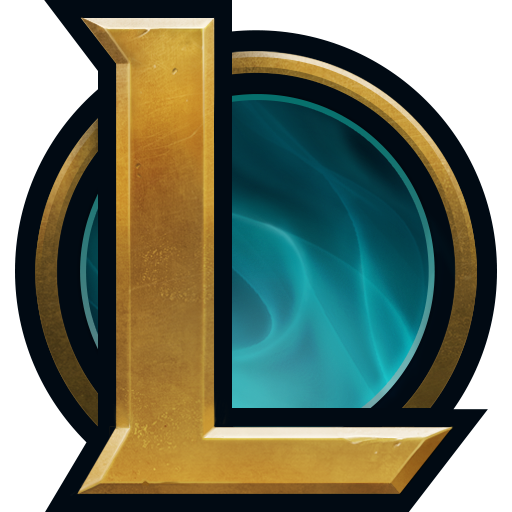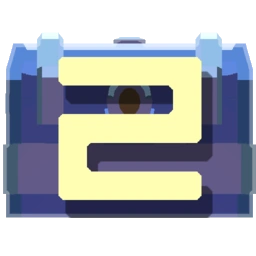Time is something we're all limited to. As we gain more responsibilities, our recreational time become limited. It's a precious resource that should only be spent on valuable activities: either for productivity or pleasure. If an activity provides neither, what is the purpose?
As I've discussed in previous posts, RPG games are satisfying analogues for the progression we desire for our own lives. This requires hard work, but we’re rewarded with milestones: graduation, promotion, new one-rep maxes, etc. Any type of progression requires time investment, and game genres interpret this in different ways. I’ll explore various game genres based on the time required to complete the designed progression, and understand how they play into my own design.
1. MMORPGs

MMORPGs are designed to keep players engaged for the longest possible amount of time. In World of Warcraft, it takes about 160 hours of playtime to progress a character from level 1 to 120 (max level at the moment). But reaching max level is just the beginning; the real progression comes from endgame dungeons and raids. The 160 hours of leveling is about one full month of a 40 hour workweek.
The gameplay experience lets the player adventure through a dangerous world slaying monsters, completing quests, and making friends along the way. Each quest or level provides some upgrades, but designed only to scale with that level of content.
I recently re-subscribed during Battle for Azeroth without the rose-tinted glasses and realized some flaws in this model. The time spent leveling is highly repetitive and stuffed with filler gameplay. A majority of time spent playing is simply traveling between point A and B; walk from town to field, walk around field, kill 10 monsters, walk back to town, rinse/repeat. This grindy and predictable gameplay serves as a nice stress reliever, and can easily be played while watching a TV or Youtube show. The actual gameplay for MMORPGs tend to be quite simple, which makes them accessible to a larger audience. WoW is not alone in this; all MMOs I’ve played in the past follow this model.
In terms of power progression, balance in MMORPGs is a delicate task. There is a complex rock-paper-scissors equation between different player classes, who must have unique strengths and weaknesses, but also balanced in power. As a multiplayer game, all players need to be equal to keep things fair. However, this way diminish the sense of progression since every player reaches an identical level of power anyways.
2. Action RPGs

Action RPGs are the precursors to MMORPGs, which means they are designed without any concern for multiplayer balance. As such, they were designed with shorter playthroughs and higher power ceilings. The player can become absurdly powerful to trivialize the game's difficulty, without diminishing the experience for other players. The advantage over MMOs is the minimized downtime since the game worlds are smaller, so more time can be spent destroying screen-fulls of enemies. ARPGs greatly condense the time required for character progression, but sacrifice the social aspect of MMOs.
My favorite Action RPG at the moment is Path of Exile. It has a fantastic leveling progression, and frequently rewards the player for their time investment. The game is notorious for its intricate passive skill tree, which gives players the freedom to develop their characters to fit their desired playstyle.
It takes about 8 hours to complete the main campaign (levels 1- 68), maybe 15 more hours of endgame for levels 68-90. There is a massive ramp-up in time for levels 91-100 (>100 hours), but before that the player has collected enough currency to fund a new, stronger character with a completely different playstyle. This creates a positive feedback cycle, as there are hundreds of powerful builds to try out. Players are encouraged to experiment and create their own custom builds, which can feel very rewarding (or punishing if you made a bad build)
3. MOBAs

The next example for character progression are multiplayer-online battle arenas (MOBAs). These games are session-based, so entire character progression is experienced in about 30 minutes. As a PvP game, its designed to reward skill rather than time, for character progression. This means a higher quality of time played since more player focus is required.
I was convinced by friends to try out playing League of Legends (LoL). While I was reluctant before, I have come to appreciate the gameplay model. In LoL, the resources required for progression are in direct competition with other players (both enemies and allies). Strategy and coordination to acquire these resources dictate the outcome of the match.
I play casually in the all-random, all-mid (ARAM) mode. The match consists of a single lane with randomly selected heroes. The gamemode allows me to experience rapid character character with increased level and gold rates. Even after reaching the power cap, the gameplay is still engaging as a competitive PvP game. Skill and strategy is needed for victory, since the enemy team has similar power creeps.
The main obstacle that I had with LoL was the competitive aspect. Although the gameplay can be quite engaging and fun, the experience is entirely dependent on the players in the match. LoL is infamous for its toxic community, which is caused by frustration from bad teammates. A bad teammate in LoL actively helps the team lose by feeding the enemy resources, which allows them to gain momentum and sweep the match. But even with good teammates, getting outplayed by more-skilled players can feel even worse.
Each match, every player starts with a clean slate. The progression in MOBAs is not the 30 minutes of gameplay, but the meta-progression in player skill. The time spent playing, reading strategy, and watching match analyses can rapidly eclipse time spent grinding at an ARPG/MMO.
4. Roguelikes

Roguelike games are even shorter, session-based games that last as short as 10 minutes. Each run starts fresh, so this type of game requires complex and rapidly evolving gameplay to remain interesting each time.
The genre of roguelike games are derived by the original Rogue dungeon-crawler developed on 1980 by college students. It used primitive ASCII graphics to randomly generate levels, which created a different experience for every run. The novelty of infinite replayability led other game developers to replicate the modular game design. Apparently in 2008, there was an "International Roguelike Development Conference" held in Berlin to define the key features required for categorizing a game within the roguelike genre.
The collection of features were labeled the "Berlin Interpretation". Below is the list of these features, and what value they have to my game design:
- Random Environment Generation: Maybe
- Permadeath: Maybe
- Turn-based: No
- Grid-based: Important
- Non-Modal: Important
- Complexity: Important
- Resource Management: Important
- Hack n' slash: Important
- Exploration & Discovery: Moderate
I haven’t played too many roguelikes, but my favorite is Risk of Rain (both the original and the sequel). For the same reasons as MOBAs, the game starts off slow but ramps up rapidly in power level. The one feature I don’t like is the randomness of the power upgrades. It feels cheap to randomly get another useless or legendary item purely from chance. And since there’s less player choice, there can’t be any planned character builds. But as mentioned, the randomness adds variety to each play session by design.
Concluding Design Goals
Based on my assessments, I decided that I’d need to design the game to take about 30-40 minutes complete. Early generation video games followed this trend due to technological limitations. Indie companies also have these shorter games since they have less resources for designing additional assets and levels. As solo project, 30 minutes of play time is quite ambitious. However I know that the type of game I’d want would need meaningful progression, which requires a certain amount of time.
Comments
Post a Comment